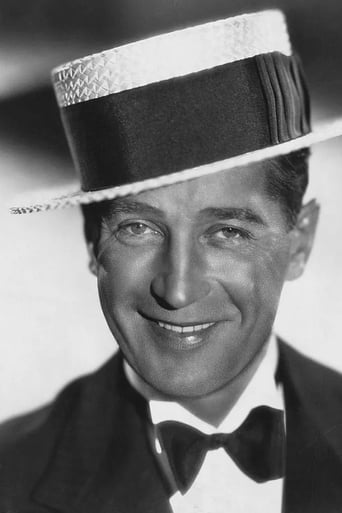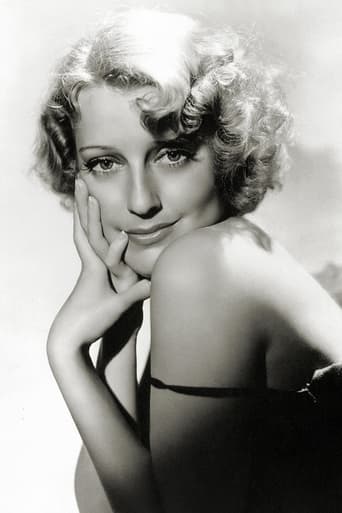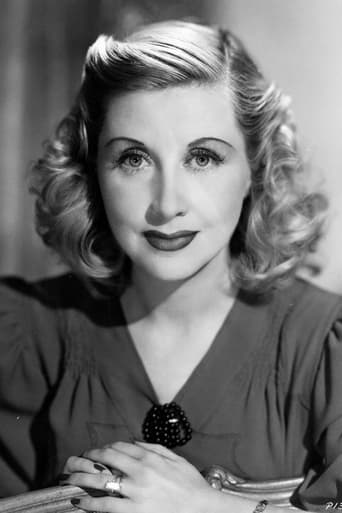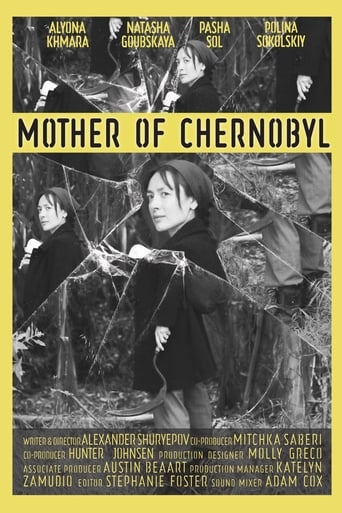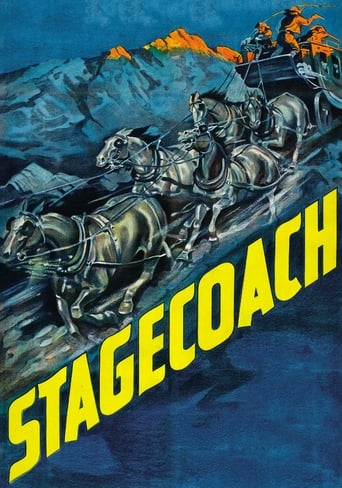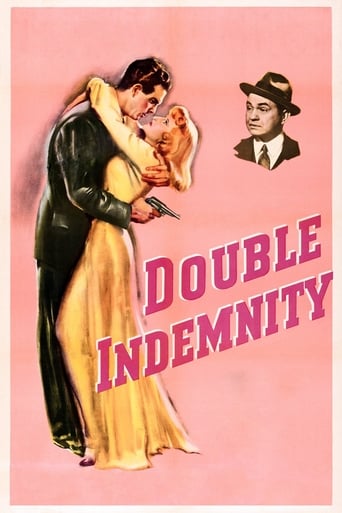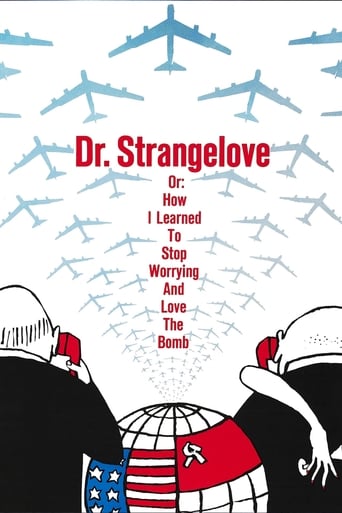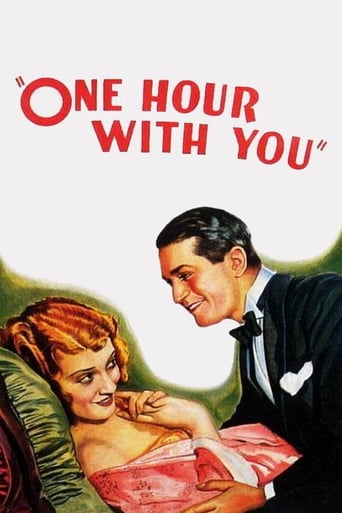
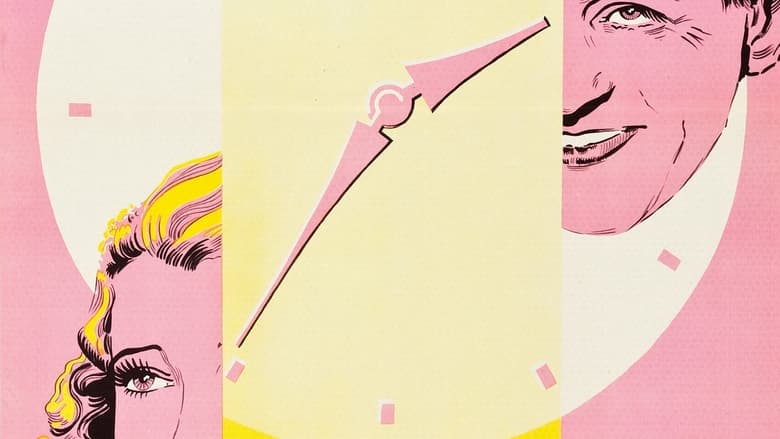
One Hour with You (1932)
Andre and Colette Bertier are happily married. When Colette introduces her husband to her flirtatious best friend, Mitzi, he does his best to resist her advances. But she is persistent, and very cute, and he succumbs. Mitzi's husband wants to divorce her, and has been having her tailed. Andre gets caught, and must confess to his wife. But Colette has had problems resisting the attentions of another man herself, and they forgive each other.
Watch Trailer
Cast


Similar titles
Reviews
hyped garbage
Instead, you get a movie that's enjoyable enough, but leaves you feeling like it could have been much, much more.
Yo, there's no way for me to review this film without saying, take your *insert ethnicity + "ass" here* to see this film,like now. You have to see it in order to know what you're really messing with.
All of these films share one commonality, that being a kind of emotional center that humanizes a cast of monsters.
I'm not particularly enamoured of ether Maurice Chevalier or Jeanette MacDonald but here they are at least bearable. It was possibly shot a little before Hallelujah, I'm A Bum, but the Rodgers and Hart score employs similar rhyming dialogue to that on display here which is the work of Leo Robin - a contract lyricist at Paramount he also worked with MacDonald on Beyond The Blue Horizon - who set some dots by Oscar Strauss. Ernst Lubitsch was, of course, celebrated for the 'Lubitsch touch' and it is in evidence here on this 'pre-code' entry. The story is hat of the oldest kind and poses the age-old question do infants have as much fun in infancy as adults do in adultery. Apart from the two principals there is fine support from both Roland Young and Charlie Ruggles with the rarely seen Genevieve Tobin weighing in with a nice line in femme fatales. Worth a look.
This classic comedy by acclaimed director Ernst Lubitsch (author of such films as "To Be or Not to Be" or "Ninotchka") displays brilliant humour, catching songs and incredibly modern points of view without ever leaving the vintage atmosphere of the time it was filmed.The issue of unfaithfulness is addressed in a way one would not suppose in a 1930's feature. Far from giving the viewer moral lessons, the movie leaves several doors open and even asks the public what would they do in a case like the one presented. The breaking of the fourth wall in doing so is another modern aspect that will take modern viewers by surprise (a very nice surprise, by the bye).No morals, no precepts, a lot of irony and sensibility; all disguised in evening dresses, bow ties, Art Deco, classic cars and that fantastic vaudeville style. Don't judge it by its age or fashion: many present films are not as modern as this is.
Ernst Lubitsch (with some "assist" from George Cukor) directs this charming and witty farce which gives Maurice Chevalier a chance to steal the film from his very talented co-stars, including Jeanette MacDonald and Genevieve Tobin.His rendering of "Oh, that Mitzi!" (he breaks the fourth wall to speak directly to the camera--as in "Gigi" years later), and "Three Times A Day" remain the highlights of the film. The story itself is pure fluff, a tale about a happily married couple who each have a fling but remain faithful to each other for the finale. Of course, it's all pre-code morality done with style and wit.The sprinkling of songs also includes some rhyming dialogue, always a clever mix of words and music. Jeanette's voice sounds tinny here and there's no use made of her operatic range as the songs are simple and sweet, but she's charming and appealing as Chevalier's happily married wife. It's hard to see why she couldn't suspect that her best friend Genevieve Tobin would want to seduce her husband when the woman is such an obvious flirt. But of course, the story is strictly fluff and full of many improbable moments. The rather abrupt ending seems an awkward way to resolve the whole marital situation.Worth viewing to watch Maurice Chevalier deliver one of his most satisfying performances, especially good when addressing the audience with his problems. The catchy title song by Richard Whiting gets some nice singing moments from several players.
Husband Maurice Chevalier and wife Jeanette MacDonald are a happy couple discovered necking in a Parisian park and cannot make the police officer believe that indeed, they are a married couple. After all, what French married couple necks out in public among the single people being chased out by the moralistic police in a slightly amoral society? But indeed, Chevalier and MacDonald are happy, that is until MacDonald's flirtatious old school chum (Genevieve Tobin) shows up with her extremely serious husband (Roland Young, obviously cast against type.) Chevalier's best pal (Charles Ruggles, cast in type) has his eyes on MacDonald even though he was Chevalier's best man at their wedding. All comes out at a lavish dinner party, and afterward, Young names Chevalier in a divorce suit.This is romantic musical comedy at its glamorous best, beautifully directed by Ernest Lubitsch with a magnificent song score to boot. The title song and "Three Times a Day" (a song about taking medication sung by Chevalier while Tobin flirts) are wonderfully fun, and "Oh, That Mitzi!" is filled with innuendo. Everything is fixed easily of course, but not before lots of pre-code no-nos occur. The stars spend part of the film speaking directly to the audience, which greatly adds to the film's charm.


